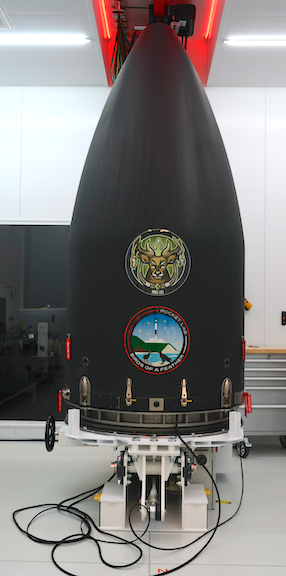
Rocket Lab announced their first flight for the new year. They are targeting the launch no earlier than 12:00 am, Friday, January 31, UTC for the launch of 'Birds of a Feather', a dedicated launch for the National Reconnaissance Office (NRO) and Rocket Lab's first launch of 2020.
The launch will take place from Rocket Lab Launch Complex 1 on New Zealand's Mahia Peninsula.
A four hour window has been allocated for launch.
Launch Window Timezone Conversion:
- UTC: 00:00 - 04:00 (31 Jan)
- NZDT: 13:00 - 17:00 (31 Jan)
- PST: 16:00 - 20:00 (30 Jan)
- EDT: 19:00 - 23:00 (30 Jan)

If Rocket Lab needs to stand down from launch for any reason, they have back-up launch days available through February 13.
Birds Of A Feather is a dedicated mission for the NRO. It is Rocket Lab's 11th mission overall, and the first Electron launch of 2020. The NRO competitively awarded the contract under the Rapid Acquisition of a Small Rocket (RASR) contract vehicle, which allows the NRO to explore new launch opportunities that can provide a streamlined, commercial approach for getting small satellites into space.
For this mission, they’ll once again be attempting a guided re-entry of Electron’s first stage through Earth’s atmosphere — a successful maneuver they achieved during their most recent mission, Running Out Of Fingers, in December 2019.
A reaction control system on the booster will orient the first stage 180-degrees during its atmospheric re-entry, to better enable it to survive incredible heat and pressure during its descent. For this mission, a camera on stage one will attempt to document the re-entry view.
This view will be available during the launch webcast, however a telemetry dropout is expected at approx. 30km altitude, resulting in an anticipated loss of video. Other aspects designed to support recovery efforts on this mission include updated guidance and navigation systems, including S-band telemetry and onboard flight computer systems, to gather and transmit data throughout the first stage’s descent.
You can find more information about the mission in the press kit attached and at: www.rocketlabusa.com/missions/next-mission/
Watch Live:
A live webcast will be available approximately 15-20 minutes prior to the target T-0 time at www.rocketlabusa.com/live-stream.
The mission will demonstrate Rocket Lab’s unique capability to provide frequent and rapidly-acquired launch opportunities for U.S. government small satellite missions
The NRO competitively awarded the contract under the Rapid Acquisition of a Small Rocket (RASR) contract vehicle. RASR allows the NRO to explore new launch opportunities that can provide a streamlined, commercial approach for getting small satellites into space.
Rocket Lab’s Senior Vice President – Global Launch Services, Lars Hoffman, says the Electron vehicle is uniquely placed to deliver the kind of frequent, rapidly-acquired launch opportunities required by the NRO and other government agencies to ensure resiliency in space.
Mr. Hoffman says said that they are honored the NRO has selected Rocket Lab as the launch provider for this dedicated mission. The Electron launch vehicle is perfectly positioned to provide the kind of rapid and responsive access to space that puts the NRO in complete control over their own launch schedule and orbital requirements. As the industry shifts toward the disaggregation of large, geostationary spacecraft, Electron enables unprecedented access to space to support a resilient layer of government small satellite infrastructure.”
Rocket Lab has been launching to orbit since January 2018 and is now the world’s leading dedicated small satellite launch provider. Rocket Lab remains the only launch provider capable of meeting the rapid-acquisition and launch requirements of dedicated small satellite missions for the U.S. government. Rocket Lab has delivered 47 satellites to orbit on the Electron launch vehicle, enabling operations in space debris mitigation, Earth observation, ship and airplane tracking, and radio communications

